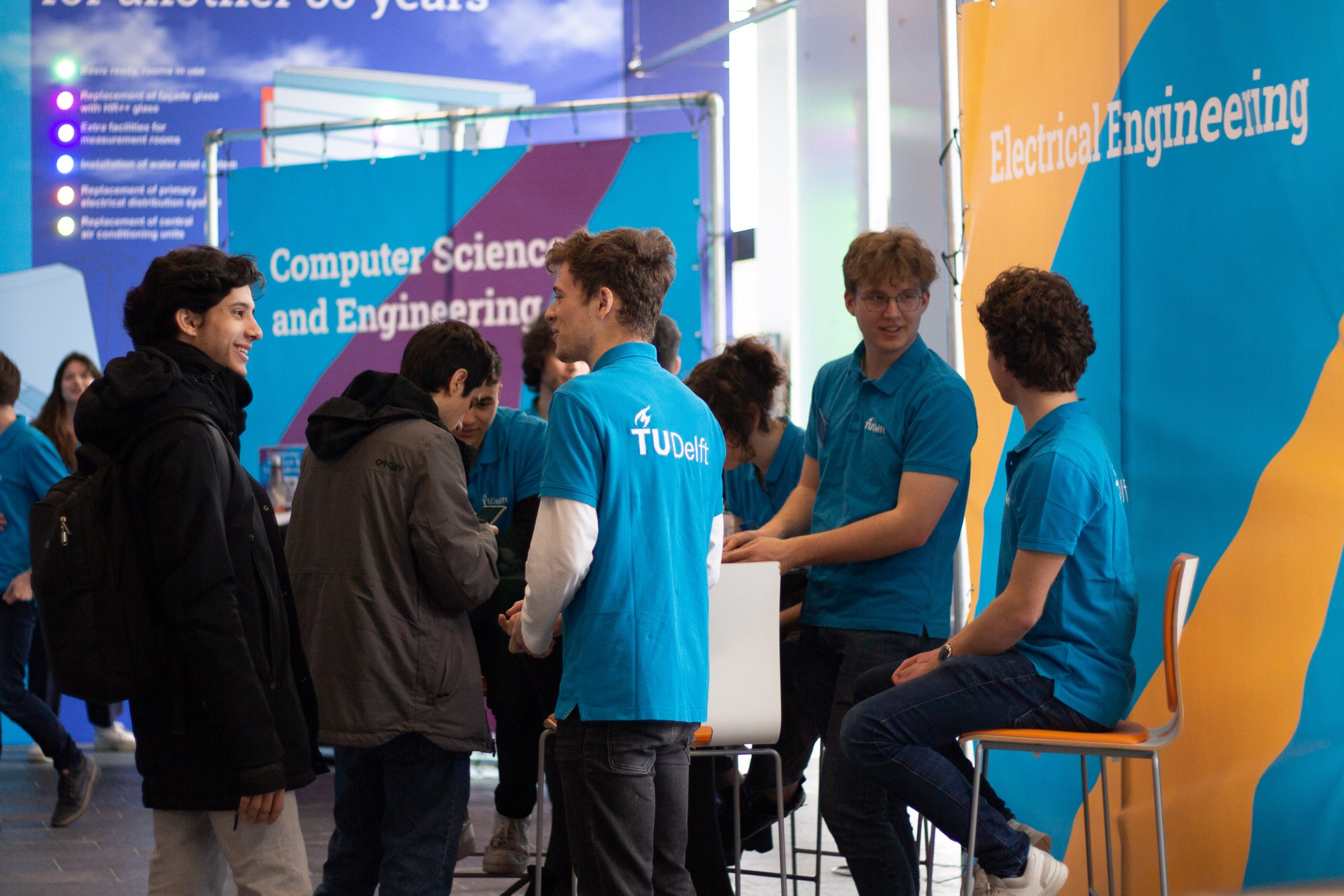The Netherlands is not in a position to cap the inflow of international students in technical studies. Rector Tim van der Hagen wrote this in the Volkskrant newspaper.
Open days at the Faculty of Electrical Engineering, Mathematics and Computer Science in March 2023. (Photo: Justyna Botor)
Van der Hagen and the rectors/Executive Board Chairs of the Universities of Twente, Eindhoven, Wageningen and Groningen jointly wrote an opinion piece (in Dutch). They believe that the Netherlands is facing ‘major societal transitions in healthcare, energy production, food security, climate, digitalisation, security and housing’. ‘Engineers play a decisive role in this’, they state.
The five of them say that they are ‘very concerned’ that ‘the Netherlands will make the same mistake as Denmark’. At the beginning of November, Denmark reversed its policy that reduced the number of degree programmes in higher education in English after employers complained about the rising shortfall of highly educated workers.
Outgoing Education Minister Dijkgraaf has a draft legislative proposal at the ready that is intended to regulate the inflow of international students, in part by looking closely at the main language of bachelor programmes. The Nieuw Sociaal Contract political party led by Pieter Omtzigt even wants to go a step further by making Dutch the only language of teaching in all degree programmes.
‘We are not doing our good reputation as an attractive place for international talent any favours’
The rectors believe that the Netherlands ‘cannot afford to make technical bachelor programmes largely or fully Dutch’. They say that the Netherlands cannot do without international technical students as the number of Dutch pupils with technical profiles has been dropping for years.
The five rectors argue for policy that would make technology more popular again among Dutch pupils, but note that even then there will simply not be enough young people in the Netherlands to meet the demand for engineers.
They point to the fact that of the internationals that come to the Netherlands to study, one quarter enter the Dutch labour market. ‘We cannot do without these talented international people.’
Just the discussion about limiting English as a medium of education in academic education is leading to ‘doubts among international talent whether or not to come to the Netherlands’ or to stay here. ‘We are thus, in a very short space of time, not doing our good reputation as an attractive place for international talent any favours, and it will take decades to rebuild it.’
In the Volkskrant article, the rectors and Executive Board Chairs also express their concerns ‘about high cutbacks (in Dutch) in education and science, as proposed by many political parties’.
They point out that in the calculations of election programmes by the Netherlands Bureau for Economic Policy Analysis, investments in science are seen only as costs and the revenues remain unmentioned. ‘This may make cuts in education and science, as proposed by many parties, seem like a logical choice, but it will ultimately cost society billions.’
Do you have a question or comment about this article?
s.m.bonger@tudelft.nl


Comments are closed.